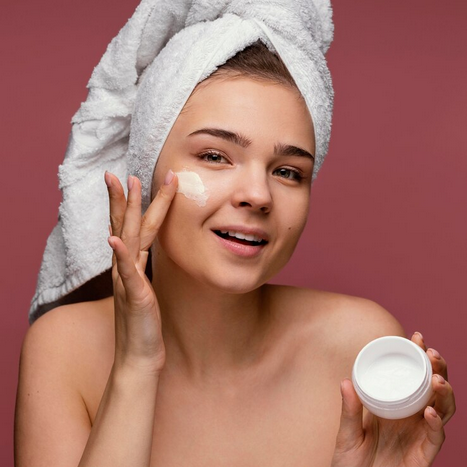Introduction
Rosacea, a chronic skin condition characterized by redness, flushing, and visible blood vessels, poses unique challenges for those seeking skin serenity. Face creams designed for rosacea management play a crucial role in alleviating symptoms and promoting a calm, balanced complexion. In this comprehensive guide, we will explore the nuances of face creams tailored for rosacea, examining key ingredients, application techniques, and lifestyle factors that contribute to achieving skin serenity.
Understanding Rosacea
Before delving into the world of face creams, it's imperative to grasp the intricacies of rosacea. This common yet often misunderstood condition primarily affects the facial skin, causing persistent redness, visible blood vessels, and, in some cases, the development of small, pus-filled bumps. Triggers for rosacea can vary, including environmental factors, certain foods, and lifestyle choices. Effective management often involves a multifaceted approach, with specialized face creams playing a pivotal role.
Key Ingredients for Rosacea Management
Choosing the right face cream for rosacea involves scrutinizing the ingredients to ensure they are gentle, soothing, and capable of reducing inflammation.
Hypoallergenic Components: Opt for face creams labeled as hypoallergenic to minimize the risk of irritation. These products are formulated to reduce the likelihood of triggering allergic reactions, making them suitable for sensitive skin prone to rosacea.
Calming Agents like Chamomile and Aloe Vera: Chamomile possesses anti-inflammatory properties, helping to soothe irritated skin. Aloe Vera, known for its cooling effect, can also alleviate redness and discomfort associated with rosacea.
Ceramides: These lipid molecules help strengthen the skin barrier, crucial for individuals with rosacea whose skin barrier may be compromised. A robust skin barrier is better equipped to retain moisture and defend against external irritants.
Niacinamide (Vitamin B3): Niacinamide offers anti-inflammatory benefits and helps regulate sebum production, contributing to a more balanced complexion. It is also known for improving the skin's barrier function.
Gentle Exfoliants like Lactic Acid: While harsh exfoliation can exacerbate rosacea symptoms, gentle exfoliants like lactic acid can promote cell turnover without causing irritation. This aids in maintaining smoother, healthier skin.
Avoidance of Common Irritants: Face creams for rosacea management should be free from potential irritants such as alcohol, fragrance, and certain preservatives. These can trigger flare-ups and worsen existing symptoms.
Optimal Application Techniques
Applying face creams for rosacea management requires a gentle touch and a mindful approach. The following techniques can enhance the effectiveness of these creams while minimizing the risk of irritation.
Cleanse with a Mild Cleanser: Start with a mild, non-irritating cleanser to remove impurities without stripping the skin of its natural oils. Pat the face dry with a soft towel.
Apply a Pea-Sized Amount: Use a small amount of the face cream to avoid overwhelming the skin. Applying too much product can lead to congestion and exacerbate rosacea symptoms.
Gentle Massaging Movements: Use gentle, upward massaging movements when applying the cream. Avoid aggressive rubbing, as this can worsen redness and irritation.
Layering with Other Products: If using additional skincare products, apply the face cream for rosacea management as the last step to seal in moisture and provide a protective barrier.
Sun Protection: Sunscreen is a non-negotiable step in rosacea management. Choose a broad-spectrum sunscreen with at least SPF 30 and apply it every morning, even on cloudy days.
Lifestyle Factors for Rosacea Management
Achieving skin serenity with rosacea management extends beyond skincare products. Lifestyle choices can significantly impact the severity and frequency of flare-ups.
Identify and Avoid Triggers: Keep a diary to identify specific triggers that exacerbate your rosacea symptoms. Common triggers include spicy foods, alcohol, and extremes in temperature.
Maintain a Healthy Diet: Opt for a well-balanced diet rich in anti-inflammatory foods. Omega-3 fatty acids, found in fish, flaxseeds, and walnuts, can be particularly beneficial for skin health.
Manage Stress: Stress is a known trigger for rosacea flare-ups. Incorporate stress-management techniques such as meditation, yoga, or deep breathing exercises into your routine.
Choose Rosacea-Friendly Cosmetics: Select makeup and skincare products labeled as suitable for sensitive skin and free from known irritants. Mineral-based makeup can be a preferable choice for individuals with rosacea.
Conclusion
Achieving skin serenity in the face of rosacea requires a holistic approach that encompasses specialized face creams, mindful application techniques, and lifestyle considerations. By choosing products with gentle, soothing ingredients, adopting optimal application practices, and addressing lifestyle factors, individuals can navigate the challenges of rosacea with greater ease. Skin serenity is not merely about the absence of symptoms; it's a journey toward a balanced, calm complexion that enhances confidence and well-being. With the right knowledge and commitment, managing rosacea becomes a step closer to achieving the coveted goal of serene and beautiful skin.





Comments